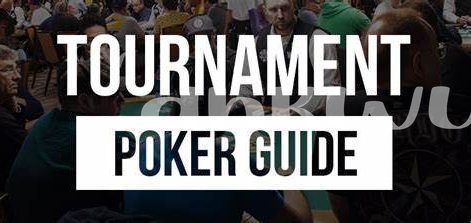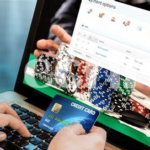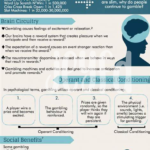Unlock Essential Strategies for Beginners to Excel in Poker Tournaments. Discover Top Tips to Decode Opponents and Secure Your Winning Spot.
Mastering Poker Tells: Tips for Tournament Newbies
Unveiling Poker Tells: the Beginner’s First Step
Decoding Facial Expressions and Body Language
Listening Skills: Beyond the Words Players Say
the Art of Bluffing and Spotting Bluffers
Developing a Winning Mindset for Tournaments
Practice Makes Perfect: Simulating Real Game Scenarios
 Unveiling Poker Tells: the Beginner’s First Step
Unveiling Poker Tells: the Beginner’s First Step

In the realm of poker, the initiation into the intricacies of player tells marks a pivotal first step for any newbie. These tells, a mix of involuntary reactions and practiced deceptions, serve as the elixir to uncovering your opponent’s hidden depths. Understanding these subtle cues requires a keen eye and a sharp mind, transforming an amateur into a formidable contender. It’s a skill that blends the science of observation with the art of interpretation, turning every twitch, smile, or hesitation into a clue.
Deciphering these signals begins with an acute awareness of facial expressions and body language, pivot points in the silent conversation at the poker table. A quiver in the voice or an overly confident bet can speak volumes, revealing the unspoken truth beneath a player’s facade. This critical skill set separates the wheat from the chaff, steering beginners away from common pitfalls and into the realm of strategic play.
Venturing further into this landscape, it becomes evident that effective listening skills extend beyond the actual words spoken. The timbre of a voice, the pace of speech, and even the choice of words can unveil a player’s confidence level or nervousness. Mastering this auditory dimension of poker tells ensures that no nuance, no matter how minuscule, escapes notice.
Engaging in this pursuit is not unlike preparing for a theatrical debut, where practice in real-game scenarios sharpens one’s ability to perform under the spotlight. This rehearsal, essential for any aspiring poker savant, cultivates a nuanced understanding of tell interpretation, equipping players with the tools needed to traverse the poker battlefield. In essence, the journey to mastering poker tells is an ongoing quest for knowledge, where every game provides a fresh opportunity to hone one’s skills.
| Aspect | Details |
|---|---|
| Facial Expressions | Immediate indicators of a player’s emotional state |
| Body Language | A broader range of cues including posture, hand movements, and more |
| Auditory Tells | Vocal cues that signify confidence, anxiety, or bluffing |
| Practice | Simulating real-game conditions to improve tell recognition |
 Decoding Facial Expressions and Body Language
Decoding Facial Expressions and Body Language

In the high-stakes world of poker tournaments for beginners, the ability to read facial expressions and body language can be a game-changer. This skill set, sometimes referred to as “the human Elixir,” is about observing the minute details: a twitch of the lips, a glance, or even an erratic hand movement. These subtle cues can signal a wealth of information to the astute observer, such as confidence or anxiety, providing crucial insights into an opponent’s strategy. However, mastering this art is no easy feat. It demands constant vigilance and a deep understanding of human psychology. Like pharmacists who decipher ‘Sig’ on prescriptions, poker players must analyze each gesture and movement to make informed decisions at the table.
Moreover, effectively decoding these non-verbal signals allows players to navigate through the emotional rollercoaster of poker tournaments. For instance, the slight stiffening of an opponent’s posture might be a ‘Red Flag’ indicating a strong hand, similar to how a ‘Pharmageddon’ day cues pharmacists about increased stress levels. Yet, one must tread carefully, as overreliance on these signs without consideration of the broader context—the ‘comp’ of game scenario—can lead to misinterpretations. Each poker face is a ‘script’ with potential ‘side efects’, requiring players to read between the lines and anticipate bluffs. Just as ‘Bubble Pack’ offers medication safety, mastering body language offers a safety net, arming players against deception and enabling them to make strategic plays with greater confidence. This nuanced understanding not only elevates one’s game but also lays the foundation for a winning mindset in poker tournaments.
 Listening Skills: Beyond the Words Players Say
Listening Skills: Beyond the Words Players Say

In the high-stakes world of poker tournaments for beginners, honing one’s listening skills opens up a treasure trove of invaluable insights, far beyond the mere words adversaries may exchange. This subtle art extends to picking up on opponents’ hesitation, excitement, or even the deliberate silence that might signify a bluff or a powerhouse hand. Much like decoding a hidden script in their dialogue, it’s about attuning one’s ears to the pitch, pace, and tone variations that often betray a player’s true intentions. A casual comment or an innocent query about the pot size can, at times, reveal more about an opponent’s hand than any visual tell. By mastering this, a newcomer can swiftly transition from a poker novice to a formidable contestant, navigating through the ebbs and flows of the game with a newfound tactical edge.
Equally, a polished listener can identify the “red flags” in an opponent’s speech that indicate stress or deceit. The unintended emphasis on certain words or an abrupt laugh can serve as a key to unlock the mystery behind an opponent’s masked expressions. This vigilance on verbal cues is complemented by understanding the context of the conversation, where an offhand remark about ‘pushing tin’ (counting chips) or a casual discussion about the ‘river card’ becomes a pivotal moment of strategic advantage. Such insights, gleaned through acute auditory observation, empower a player with teh skills to navigate the complexities of poker tournaments with confidence and finesse, promising a thrilling journey from the get-go.
 the Art of Bluffing and Spotting Bluffers
the Art of Bluffing and Spotting Bluffers
Mastering the art of deception in poker is akin to a seasoned pharmacist understanding the nuances between generics and brand-name medications. Each player at the table dispenses their own version of a ‘cocktail,’ a blend of true intentions and misleading cues designed to throw you off their scent. Just as a pharmacist must know the effects of each drug in a cocktail, a poker player must be adept at interpreting these signals to determine whether they’re facing a genuine threat or a clever bluff. It’s a skill that requires keen observation and an understanding of human psychology, much like distinguishing between a ‘hard copy’ of a prescription and a hastily scribbled note.
In poker tournaments for beginners, the ability to spot bluffers is as critical as knowing when to push your own advantage. Think of it as akin to identifying ‘red flags’ in prescriptions, where the stakes are not just about winning or losing a single hand, but about staying alive in the contest. Spotting inconsistency in a player’s behavior could be the tipping point, revealing whether they’re holding the pharmaceutical equivalent of a lifesaving elixir or just a placebo.
To weave through the psychological warfare of poker, one must also perfect the craft of bluffing – sending out signals that mislead others about the strength of your hand. This is where the strategic application of ‘pill splitting’ comes into play, metaphorically speaking. It’s about dividing your tactics between aggressive bets to project confidence and cautious play to suggest vulnerability, all while keeping your true strategy under wraps.
Finally, for those stepping into the world of poker tournaments, remember, your goal isn’t just to deceive but to unveil deception as well. Just as a seasoned ‘Pharm Tech’ can differentiate between a genuine ‘Rx’ and a dodgy ‘script,’ your poker acumen must develop to the point where you can separate bluffs from genuine threats. With experience, you’ll learn that successful bluffing and spotting bluffers is an art form, one that requires practice, patience, and a deep understanding of the human elemnt. Embrace teh challenge, and you may just find yourself not only surviving but thriving in the competitive arena of poker tournaments.
 Developing a Winning Mindset for Tournaments
Developing a Winning Mindset for Tournaments

Venturing into the competitive realm of poker tournaments for beginners can be daunting, but cultivating a winning mindset is the cornerstone to any player’s success. Acknowledging the high stakes and intense pressure, it’s crucial to keep your cool and stay focused on the game rather than getting lost in a sea of ‘what ifs.’ Adopting a positive attitude towards learning, not just winning, can transform each match into a valuable lesson, pushing you closer to mastery. Embracing every outcome as an opportunity for growth rather than a mark of failure cultivates resilience, a trait every poker champion holds in high regard. Understanding that poker is a blend of skill, strategy, and a dash of luck is essential in maintaining a balanced perspective on both your victories and setbacks.
Equally important is recognizing that the journey of becoming a top contender in poker tournaments does not happen overnight. Just like mastering an elixir in Pharm Land, it requires patience, dedication, and continuous effort. Integrating practice into your routine is not merely about playing game after game but analyzing your performance, identifying areas of improvement, and strategizing for future engagements. Below is a table that outlines key components of a winning mindset:
| Component | Description |
|---|---|
| Resilience | Ability to bounce back from losses and see them as growth opportunities. |
| Patience | Understanding that mastery and success take time and continuous effort. |
| Positive Attitude | Maintaining a focus on learning and growth, rather than just winning. |
| Strategic Planning | Analysing past performances to plan and improve future game strategies. |
| Focus | Concentrating on the game and strategies, avoiding distractions. |
By dedicating yourself to these principles and remembering that every poker champion once started as a beginner, you lay the foundation for not just participating in poker tournaments, but excelling in them. The ability to stay grounded, learn from each hand, and keep pushing forward, even when the odds seem stacked against you, is what separates the amateurs from teh pros.
 Practice Makes Perfect: Simulating Real Game Scenarios
Practice Makes Perfect: Simulating Real Game Scenarios
As novices in the poker realm venture into the intricacies of tournament play, honing their skills through simulation of real game scenarios becomes invaluable. 
The significance of simulating real poker games extends beyond mere familiarity with the game’s mechanics. 
Equally, this practice is a sandbox for psychological preparedness, offering a safe space to fail, learn, and build resilience. The emotional rollercoaster of real tournaments—complete with highs of big wins and lows of unlucky hands—can be daunting. Simulated scenarios prepare players for this emotional variability, ensuring they remain unfazed and focused, maintaining a ‘winning mindset’ when the stakes are high. It’s an environment where the cost of failure is merely a lesson rather than a hit to the wallet or ego.
To conclude, the path to mastering poker and excelling in tournaments is paved with diligent practice. Such preparation instills a robust understanding of game mechanics, enhances strategic flexibility, and fosters psychological resilience. For tournament newbies, simulating real-game scenarios isn’t just practice; it’s a crucible that transforms raw talent into refined skill, ensuring they’re not just participants but formidable contenders. With each simulated game, players edge closer to their ultimate goal: not just to play, but to outplay.


